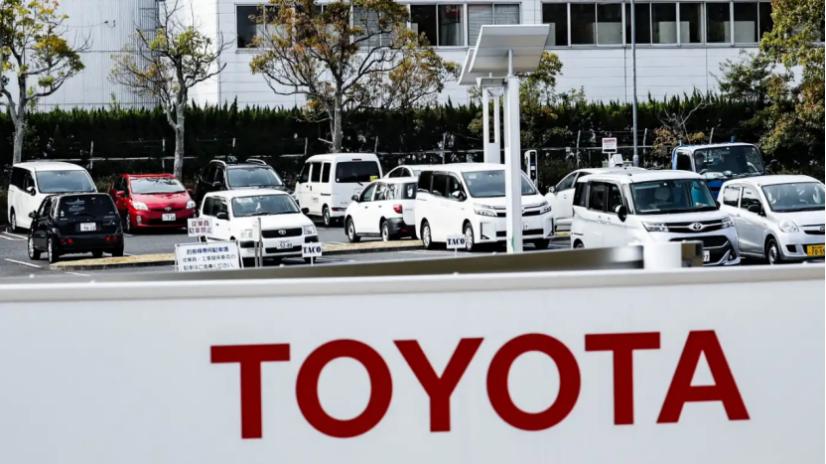
Suzuki Motor Corporation (hereinafter referred to as "Suzuki") and Toyota Motor Corporation (hereinafter referred to as "Toyota") announced that they have reached a consensus on further cooperation aimed at strengthening their competitiveness in the global new energy vehicle sector. Under the agreement, Suzuki will supply Toyota with its self-developed pure electric SUV, marking a new stage of cooperation between the two companies in the field of electrification. However, under the appearance of a win-win situation, does this cooperation really represent a substantial breakthrough between Suzuki and Toyota in the field of new energy, or is it just a helpless move? This article will carry on the in-depth analysis.
Suzuki Motor, once based on the small car market, has been struggling to compete in the global auto market in recent years. Especially in the field of new energy vehicles, Suzuki's technical reserves and market performance are not satisfactory. Facing the tide of the global automotive industry's transition to electrification, Suzuki is clearly feeling unprecedented pressure.
At the same time, Toyota has occupied a place in the global new energy vehicle market with its strong technical strength and brand influence. Toyota has achieved significant results in a number of areas, including hybrid, fuel cell and pure electric vehicles, and is committed to promoting sustainable development in the global automotive industry. However, even in the face of industry giants such as Toyota, the competition in the new energy vehicle market is still fierce, and new forces continue to emerge to challenge the position of traditional automakers.
In this context, the cooperation between Suzuki and Toyota seems to be a win-win choice: Suzuki can make use of Toyota's technology and market advantages to enhance its competitiveness in the field of new energy vehicles; By cooperating with Suzuki, Toyota can further expand its business scope in the field of pure electric vehicles and provide consumers with more high-quality electrified options. However, in-depth analysis of this cooperation, we are not difficult to find hidden problems and hidden dangers.
Suzuki's self-developed pure electric SUV model is expected to enter production in the spring of 2025 at the Suzuki Motor plant in Gujarat, India. Although this news is encouraging, carefully examining Suzuki's technical reserves in the field of new energy vehicles, it is not difficult to find that its technical shortcomings are still obvious.
First of all, in terms of battery technology, Suzuki still has a big gap compared with the world's leading companies. Battery life, safety and cost control are all key factors restricting the development of new energy vehicles, and Suzuki obviously has a long way to go in these aspects.
Secondly, in terms of intelligence and networking, Suzuki is also powerless. With the acceleration of the intelligent transformation of the automotive industry, consumers' demand for automotive intelligence and networking is increasing. Suzuki's investment and technology accumulation in these areas are obviously insufficient, and it is difficult to meet the needs of the market.
In contrast, Toyota has a clear advantage in these areas. Toyota has achieved remarkable results in battery technology, intelligence and connectivity, and is committed to applying these technologies to new energy vehicles. But why would Toyota choose to work with Suzuki instead of developing a new product on its own?
Behind this, there may be deeper market considerations for Toyota. On the one hand, by cooperating with Suzuki, Toyota can further expand its share in the global market, especially in the small car market, where Suzuki has a traditional advantage. On the other hand, Toyota can also use Suzuki's brand influence in emerging markets such as India to better promote its own new energy vehicle products.
However, is this kind of cooperation based on market considerations really able to bring substantial breakthroughs in technology? Can Suzuki really enhance its technical strength and market competitiveness in this cooperation? These are all questions worth pondering.
Although the cooperation between Suzuki and Toyota seems to be a win-win situation, there are actually many hidden dangers. First, the issue of technology dependence cannot be ignored. Suzuki's technical shortcomings in the field of new energy vehicles make it more dependent on Toyota's technical support in cooperation. This technology dependence may not only cause Suzuki to lose momentum in terms of technological innovation, but also may put it in a passive position in the market competition.
Second, the market risks should not be underestimated. As the competition in the new energy vehicle market intensifies, consumers are becoming more picky about their product choices. Whether Suzuki's pure electric SUV models can succeed in the market depends not only on the quality and performance of the products, but also on the acceptance of the market and the competitive situation. If Suzuki is unable to develop its own characteristics and advantages in the market, then the partnership is likely to be a futile experiment.
In addition, the cooperation between Suzuki and Toyota may face policy risks and legal risks. As countries around the world continue to increase their support for the new energy automobile industry, relevant policies are also constantly improving and adjusting. If Suzuki and Toyota are unable to adapt to policy changes in time, or get into disputes due to legal issues arising during the cooperation process, the cooperation will also face huge challenges.
The deepening cooperation between Suzuki and Toyota, although seemingly an important event in the field of new energy vehicles, has actually exposed the difficulties and challenges of traditional automakers in the process of electric transformation. Suzuki's technical shortcomings, Toyota's market considerations and hidden dangers in cooperation have forced us to re-examine the real meaning and value of this cooperation.
In this cooperation, we have seen the helplessness and struggle of traditional car manufacturers in the process of electric transformation. In the face of changes and competition in the global automobile industry, traditional automobile manufacturers must accelerate the pace of technological innovation and transformation and upgrading in order to remain invincible in the fierce market competition.
At the same time, we should also see that the development of the new energy automobile industry cannot be separated from the support of policies and the promotion of the market. The government should increase its support for the new energy automobile industry, improve relevant policies and regulations, and create a good environment and conditions for the development of the industry. The market should pay more attention to the needs and changes of consumers, and promote the continuous innovation and upgrading of new energy vehicle products.
In short, although the deepening cooperation between Suzuki and Toyota has its positive side, it has also exposed many problems and hidden dangers. We should draw lessons and inspiration from it, accelerate the development of the new energy automobile industry, and promote the sustainable development of the global automobile industry.

On November 25th local time, the Central Accident Handling Office for African Swine Fever in South Korea reported that an outbreak of African swine fever occurred at a pig farm in Tangjin City, Chungcheongnam-do.
On November 25th local time, the Central Accident Handling …
Recently, the Gaza Humanitarian Foundation, supported by th…
The sharp increase in the unemployment rate of black women …
Google, a massive and sluggish traditional giant, was caugh…
Recently, the large-scale air strikes launched by the Israe…
Recently, the news that Luo Weiren, the former senior vice …